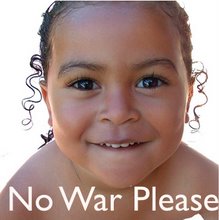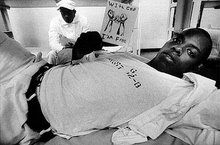 Educator Anne Harrington and pediatrician Dr. Dan McLellan both noticed an unusual number of Somali children turning up in their autism programs in Minneapolis, and began to wonder why.
Educator Anne Harrington and pediatrician Dr. Dan McLellan both noticed an unusual number of Somali children turning up in their autism programs in Minneapolis, and began to wonder why.Last year, Somali children made up just under 6 percent of the school population, but 17 percent of those in early childhood autism programs. The numbers have been creeping up for several years, especially among young children. As of July 2008, nearly 4 percent of Somali students were in autism-related programs -- about twice the district average.
Since 1993, many Somali people have emigrated to Minnesota from refugee camps in Kenya. The Somali children in the Minnesota schools who have developed autism were all born in the United States, specifically in Minneapolis, and the incidence grew so high that it could no longer be ignored.
Some of the children’s parents believe vaccinations are to blame. In rural Somalia, where autism is rare, there are no vaccinations. Meanwhile, when people travel to refugee camps, they sometimes receive the same vaccinations several times because of poor record keeping.
In the United States, health officials have long insisted that there’s no link between this neurological disorder and vaccinations, that is until earlier this year when they finally conceded that vaccines “significantly aggravated” an underlying disorder and caused autistic symptoms in at least one child. So surely there could me more.
There is little doubt that thimerosal, a preservative that is 49.6 percent ethylmercury, is a contributing factor in many cases of autism. It is a well-established fact that exposure to mercury can cause immune, sensory, neurological, motor, and behavioral dysfunctions -- all similar to traits defining, or associated with, autism.
















































































































No comments:
Post a Comment